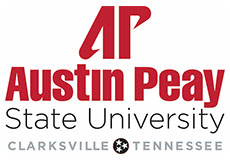 Clarksville, TN – Embarking on a unique journey of academic exploration and personal growth, Austin Peay State University (APSU) student Meleah Lanier charted a course through the International Research Experiences for Students (IRES) program, underscoring the immense value of such international experiences for STEM students.
Clarksville, TN – Embarking on a unique journey of academic exploration and personal growth, Austin Peay State University (APSU) student Meleah Lanier charted a course through the International Research Experiences for Students (IRES) program, underscoring the immense value of such international experiences for STEM students.
In the program, Lanier probed deeply into the domain of chalcogenide glasses. These materials, utilized in thermal imaging and military detection, were examined by Lanier for their potential use in superconductors. Their novel investigation focused primarily on iron-based glasses, and their findings have shown promise.
“I was working with amounts of iron and tin in my glasses because we noticed other behaviors in some literature, and it was something that hadn’t been tried before,” Lanier shared about their innovative approach.
Lanier and five other students from the College of STEM at Austin Peay State Univesity spent several weeks of their summer in Europe. This opportunity was part of a three-year, $300,000 International Research Experience for Students (IRES) grant from the National Science Foundation.
This grant aims to send 18 APSU students to partner universities in the Czech Republic, France, and Poland over three years. This follows the previous summer when five students embarked on a similar journey.
Developing New Insight

While Lanier’s sojourn in France presented language barriers and unfamiliar work culture, it honed their resilience and problem-solving skills.
“Being able to develop those skills and being quick on your feet and thinking about what to do is important,” they said.
The experience in France also enriched Lanier’s perspective on international collaboration in STEM, most notably about the exceptional work at the University of Rennes I.
“It offers excellent insight into working in the industry, specifically in the STEM industry,” they said.
The IRES program was instrumental in Lanier’s evolution. Initially grappling with impostor syndrome, they realized their capabilities and the extent of their knowledge.
“Despite the feeling of being underqualified initially, as I navigated through the program, I realized I was more capable and knowledgeable than I’d given myself credit for,” they said.
Furthermore, the program experience solidified Lanier’s career aspirations.
“The experience solidified my desire to join the industry rather than pursue academic studies,” they said. “It was an excellent insight into working in the STEM industry.”
‘Embrace International Exposure’
In addition to the academic experiences, Lanier appreciated the non-academic encounters in France, where they noted the importance the French place on social and recreational time, underlining the need for work-life balance.
Reflecting on their journey, Lanier offered advice to future IRES program hopefuls.“Embrace international exposure,” they said. “Gain diverse experiences, learn to problem-solve, adjust to different work cultures, communicate, and collaborate effectively. Most importantly, understand your career aspirations and value work-life balance.”
Post-IRES, Lanier is actively exploring future opportunities in engineering, demonstrating their commitment to the field. The experience in France has shaped their career trajectory and prepared them for a future in the STEM industry, with an interest in local opportunities such as internships at Trane and LG.



